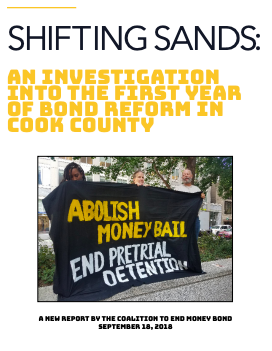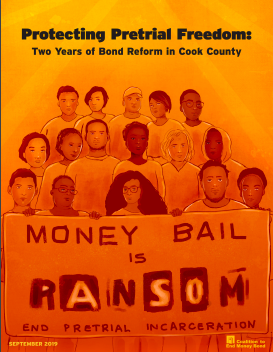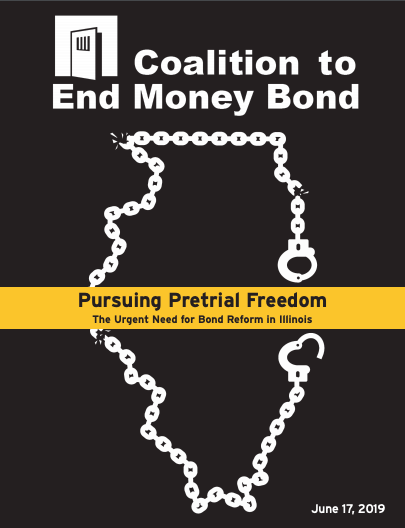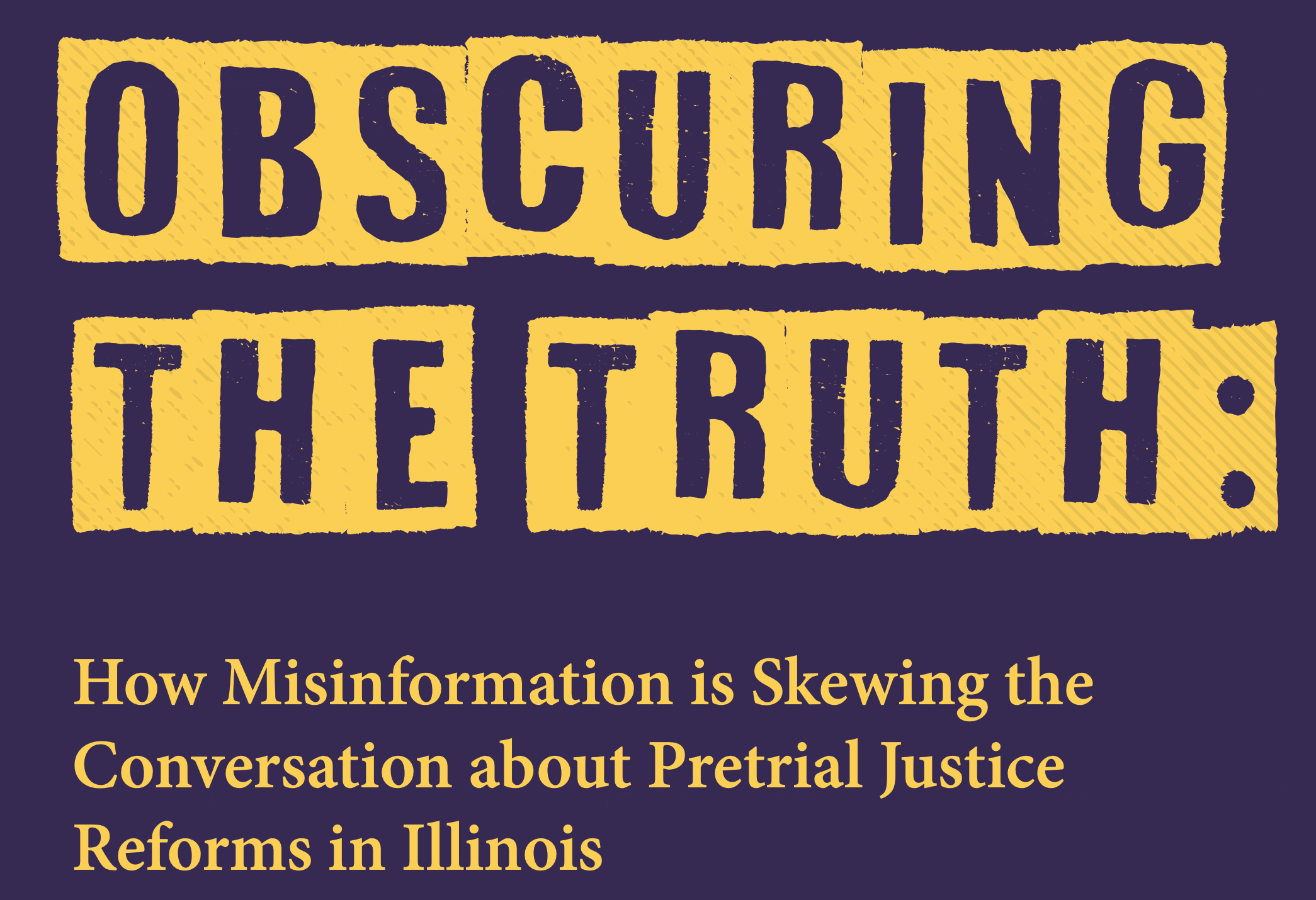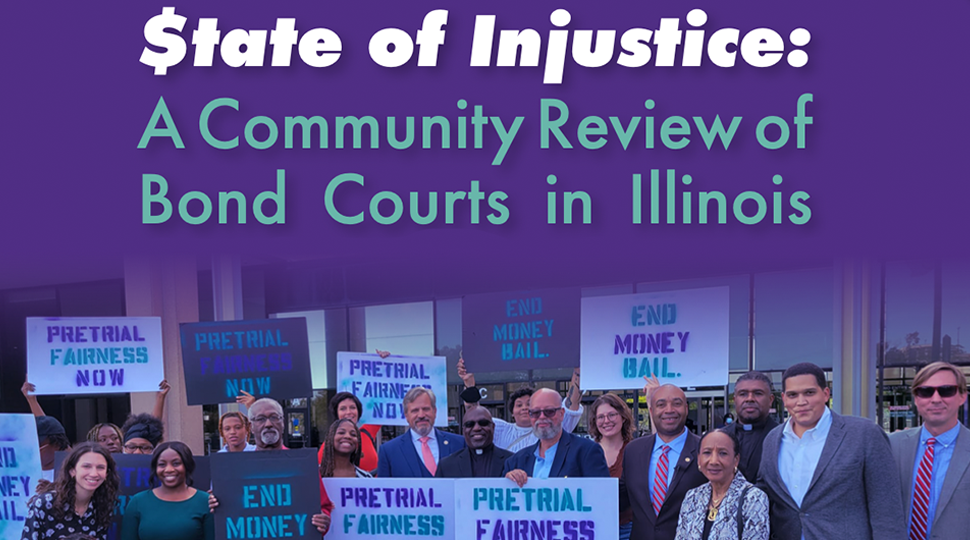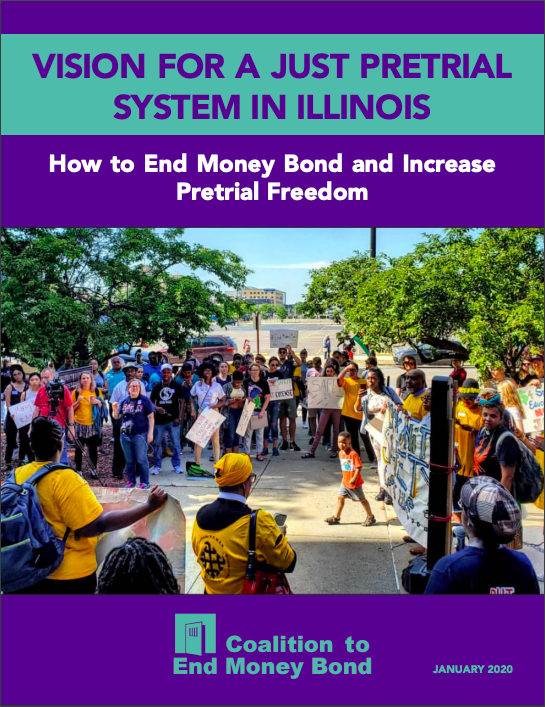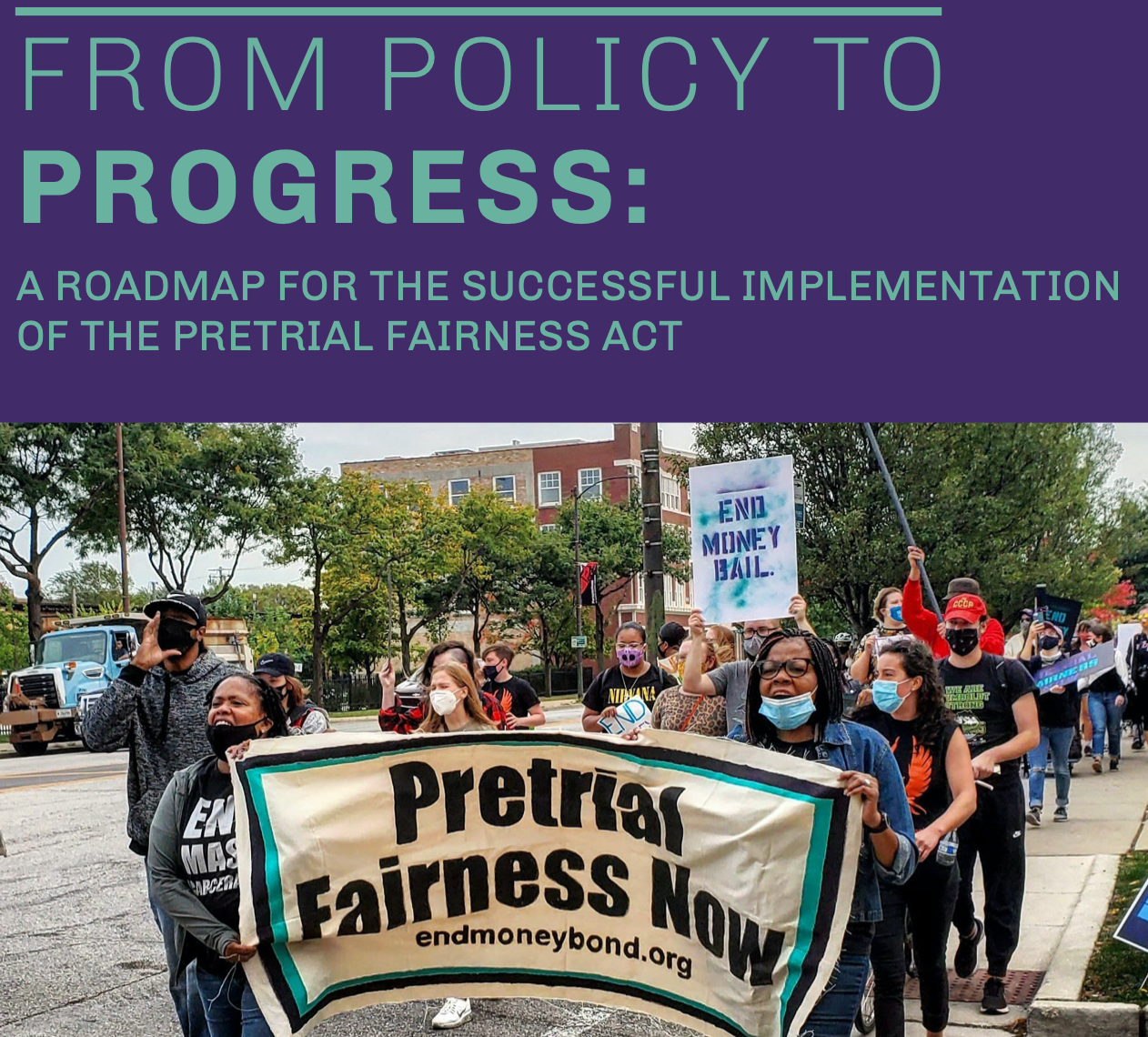Working to Reduce Pretrial Incarceration in Illinois
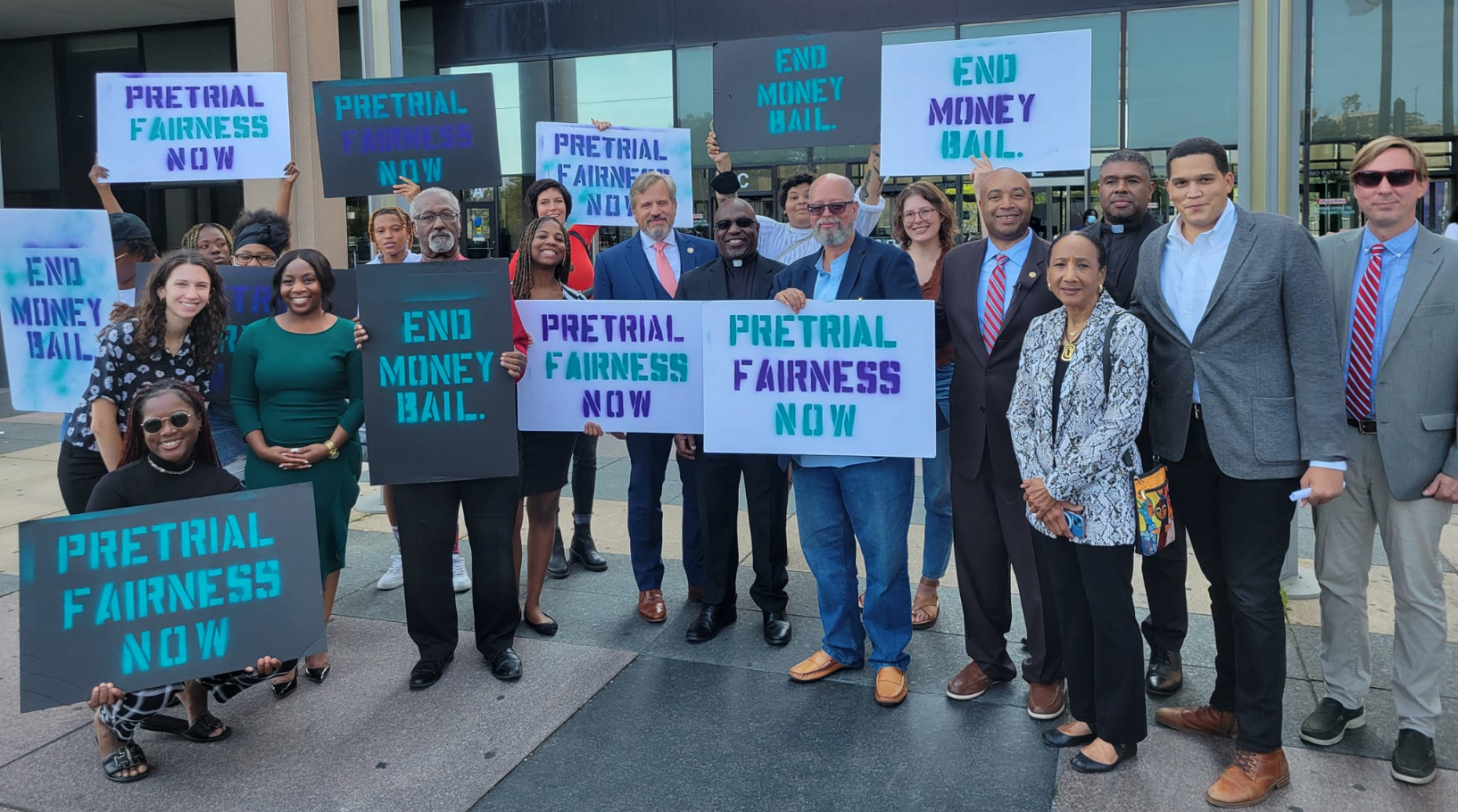
The Coalition to End Money Bond began working to end wealth-based incarceration and reduce pretrial jailing in May of 2016. In 2019 we took our work statewide and founded the Illinois Network for Pretrial Justice, a statewide network of organizations that share our values and goals. Our collective work is grounded in the Principles of Bond Reform in Illinois, which have been endorsed by more than 75 organizations and two U.S. congresspeople, 21 Illinois State Senators and Representatives, and 23 county and city officials from across Illinois.
Our organizing culminated in the passage of the Pretrial Fairness Act, legislation that will make Illinois the first state in the country to completely eradicate the use of money bond and will reduce our state’s use of pretrial jailing. Currently, our Network is focused on defending the law and ensuring its successful implementation.
Click Here to Learn More About the Pretrial Fairness Act.
On this page, we’ve archived the work our Network undertook to reach the first phase of our goal: ending money bond. You can learn more about our current efforts by visiting the News section of our website.
Reducing Pretrial Jailing in Cook County
Litigation, General Order 18.8A and the Community Courtwatching Initiative
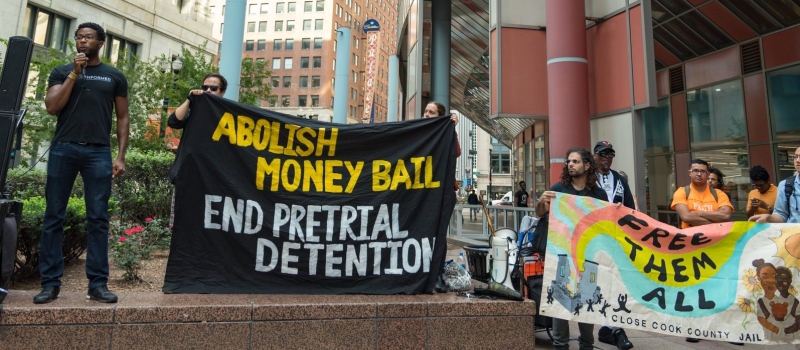
In October 2016, the Coalition to End Money Bond supported a historic lawsuit challenging the practice of jailing people too poor to pay bond. That lawsuit and pressure from our organizing eventually led to Cook County Chief Judge Timothy Evans’ July 2017 adoption of General Order 18.8A, a groundbreaking local court rule designed to end wealth-based pretrial incarceration in Cook County by ensuring all money bonds were affordable.
Below are three reports generated by the Community Courtwatching Initiative and subsequent implementation monitoring efforts. The courtwatching initiative trained more than 100 people from across Cook County to monitor Central Bond Court for two months when the order took effect. Two years later, we continue to hold Cook County’s judges accountable to the order, and our courtwatching strategies have been replicated and expanded upon by campaigns across the country.
General Order 18.8A and the Coalition’s accountability efforts have led to the number of people incarcerated in Cook County Jail dropping to 5,762 people, a historic low.
An in-depth look at the initial implementation of General Order 18.8A through community courtwatching.
A report by the Coalition to End Money Bond on the inconsistent implementation of General Order 18.8A in its first year.
A review of the second year of General Order 18.8A’s implementation and impact in Cook County.
Rally to #EndMoneyBail – September 2017
#EndMoneyBail Rally Recap – September 2018
Calling for Change Statewide
A Proposed Supreme Court Rule & the Commission on Pretrial Practices
After Chief Judge Evans issued General Order 18.8A in July 2017, advocates, community groups, and county officials joined together to call on the Supreme Court of Illinois to institute a proposed court rule that would require an evidentiary hearing and a finding by the judge that an accused person is able to afford a money bail before one is imposed.
That call, along with pressure from litigation and organizing, led to the formation of the Illinois Supreme Court Commission on Pretrial Practices in December 2017. The commission was established to review Illinois’ unjust, wealth-based bond system. Initially, the Commission’s process had taken place behind closed doors and was inaccessible to community members and advocates.
In June 2019, the Coalition to End Money Bond published Pursuing Pretrial Freedom: The Urgent Need for Bond Reform in Illinois. Illinois’ 102 counties are home to 92 different jails. More than a quarter of a million people pass through their doors annually, and 90% of them are incarcerated pretrial. Every day, thousands of people are caged in Illinois, not because of a criminal conviction, but simply because they cannot afford to purchase their freedom. This report explores the impact of money bond and pretrial incarceration across Illinois and makes recommendations for how the state can reform its pretrial justice system.
In July 2020, the Illinois Network for Pretrial Justice released our Evaluation of the Illinois Supreme Court Commission’s Final Report and Recommendations. The Commission’s final report validates many of the Illinois Network for Pretrial Justice’s policy positions. Most importantly, both the Network and Supreme Court Commission agreed that no one should be incarcerated simply because they cannot afford to pay a money bond. The Commission also agreed that we must limit the number of criminal charges that are eligible for pretrial incarceration and expand the ability of law enforcement to issue citations instead of making arrests. Ultimately, the Commission’s final report helps bring us closer to ending wealth-based incarceration in Illinois
Over the course of several months, the Coalition collected nearly 1,000 signatures in support of a public hearing and sent in hundreds of postcards from individual supporters calling on the commission to hear the voices of impacted communities. In April of 2019, the Illinois Supreme Court Commission on Pretrial Practices announced it would be hosting public hearings on pretrial justice and accepting written comments.
Communities from across Illinois attended hearings in Springfield, Champaign-Urbana, Chicago, and Freeport. In total, more than fifty people testified in support of bond reform, many calling for the adoption of our proposed Supreme Court Rule. Written comments were submitted from a diverse group of organizations and individuals, each addressing one or more ways in which money bond and pretrial incarceration harm our communities.

The Pretrial Fairness Act
Passing Legislation to End Money Bond During a Pandemic &
the Largest Racial Justice Protests in US History
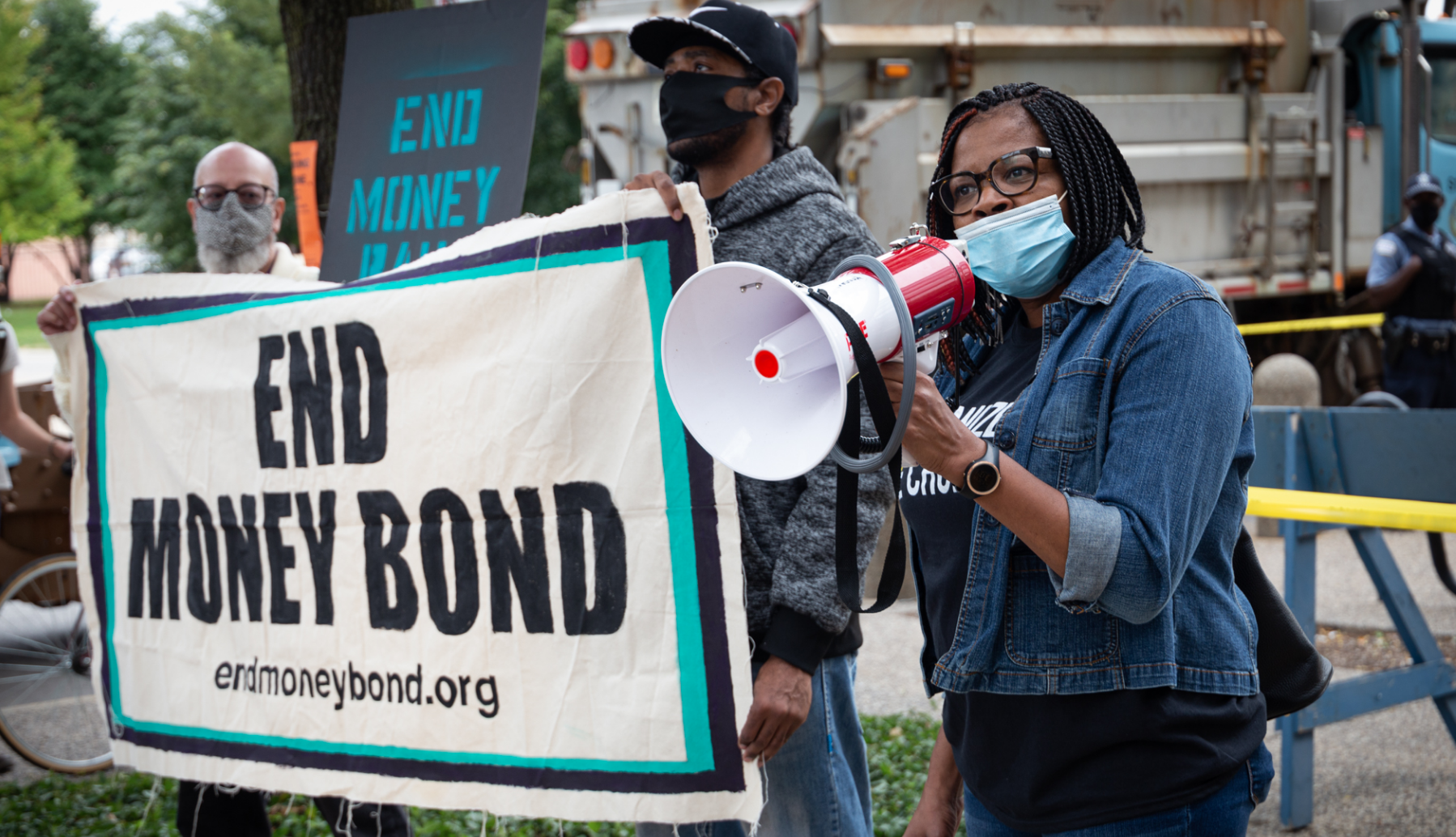
In January of 2020, Governor JB Pritzker announced that his administration would work to “end money bond.” Following this announcement, we published Vision for a Just Pretrial System: How to End Money Bond and Increase Pretrial Freedom, which detailed six principles designed to guide lawmakers in efforts to reform Illinois’ pretrial justice system. The report provided a pathway for ending money bond and improving the fairness and effectiveness of our court system from the perspective of the impacted community members, faith leaders, and policy experts.
In February of 2020, we organized several hundred people from across Illinois to go to the capitol and call on their legislators to end money bail. Just a few weeks later, our entire world changed with the start of the COVID-19 pandemic. The legislature was shut down and our advocacy efforts shifted to focus on reducing the number of people incarcerated in Cook County Jail to save lives. Our efforts are documented in the report “Protecting Health Through Decarceration”. You can read more about our campaign on this page.
That summer, millions of people from across the US took to the streets in response to the police murders of Breonna Taylor and George Floyd. The Illinois Legislative Black Caucus responded to the largest civil rights protests in our nation’s history by passing a series of bills aimed at addressing systemic racism. Among them was the SAFE-T Act, which included legislation known as the Pretrial Fairness Act that would transform our state’s criminal legal system. The Pretrial Fairness Act was first introduced in the legislature with the support of our Coalition in 2016 as the Equal Justice for All Act. The updated version of the Act was informed by the findings of the 2017 Illinois Supreme Commission.
On January 13, 2021, the Illinois legislature passed the Pretrial Fairness Act as part of the SAFE-T Act, it was signed into law by Governor Pritzker on February 22, 2021. The Illinois Network for Pretrial Justice published From Policy to Progress: A Roadmap for the Successful Implementation of the Pretrial Fairness Act to assist stakeholder efforts to implement this historic law.
Leading into the 2022 election, attacks on the Pretrial Fairness Act increased. Conservatives and law enforcements tried to turn the election into a referendum on the law and lost. Throughout the election, misinformation about the law was distributed across social media, and through the delivery of fake newspapers and bad news stories. In response, the Illinois Network for Pretrial Justice released Obscuring the Truth: How Misinformation is Skewing the Conversation about Pretrial Justice Reforms in Illinois, this report is a resource for communities and reporters to help them understand how the Pretrial Fairness Act works and what impact previous pretrial justice reforms had on community safety.
Ahead of the 2022 legislative veto session, people across Illinois engaged in community court-watching efforts to document how the current bond system is negatively impacting their communities. Their findings were released in $tate of Injustice, our report to advocate for protecting the Pretrial Fairness Act from rollbacks during the legislative session. On December 1, 2022, the legislature passed a trailer bill that remained true to the spirit of the law and focused on its successful implementation.


